Everything you need to know about why you have trouble falling asleep and tips to help you sleep better.
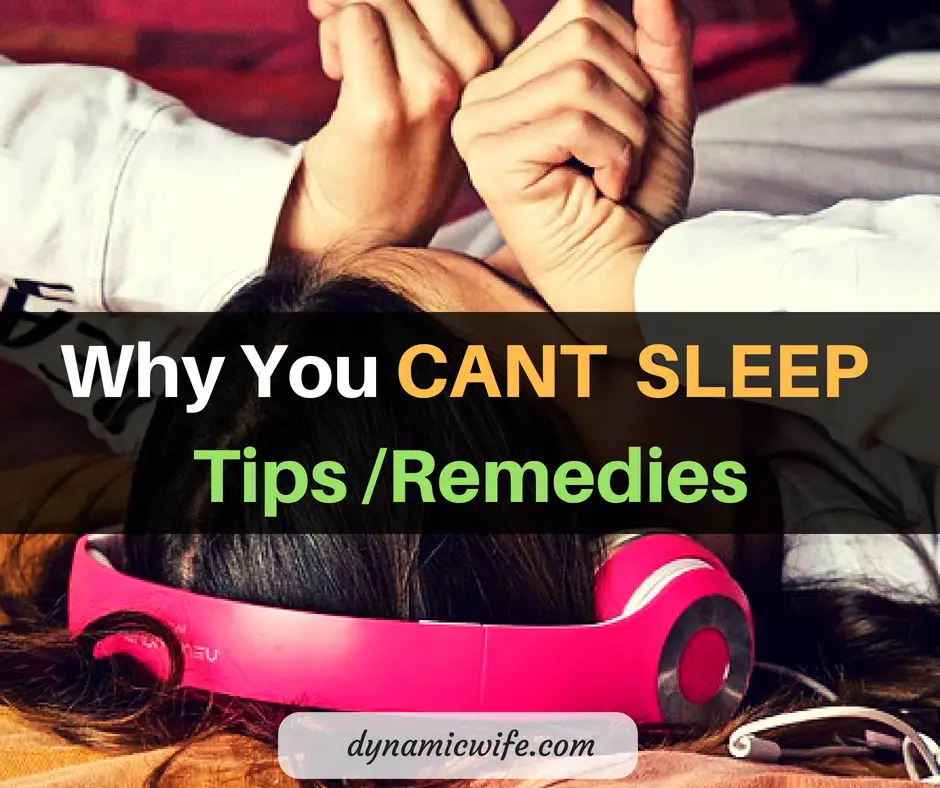
SEE ALSO: Ashwagandha for Anxiety
Everything you need to know about why you have trouble falling asleep and tips to help you sleep better.
It’s past 2 am and you’re eyes are still wide open like an owl.
Your body feels tired and stressed. You want to sleep but sleep eludes you.
Or perhaps you woke up in the middle of the night and no matter what you did, you just can’t seem to get back to sleep.
I know how I feel when I haven’t had a good night’s sleep and I know how I feel when I’ve had one. A good night of sleep is necessary for us to function both physically and emotionally.
Research shows that when you get the right amount of sleep on a steady basis we tend to live longer and healthier lives than those who sleep less [1] and as we age deep sleep becomes something that we miss.
How Much Sleep Do We Need?
Adults are recommended to have 7 or more hours of sleep per night to promote good health & wellbeing.
What happens when you have less or no sleep?
The following are some of the consequences of getting less than 7 hours of sleep on a regular basis [2, 3]:
- Do you happen to notice a sudden weight gain ever since you started having less sleep? Weight gain and obesity are 2 major symptoms of sleeping less.
- Diabetes
- Hypertension
- Heart disease
- Stroke
- Depression
- Increased risk of death
- Weakened immune system
- Weakened performance
- More errors and increased risk of accidents
- More pain
6 Health Benefits of Sleep
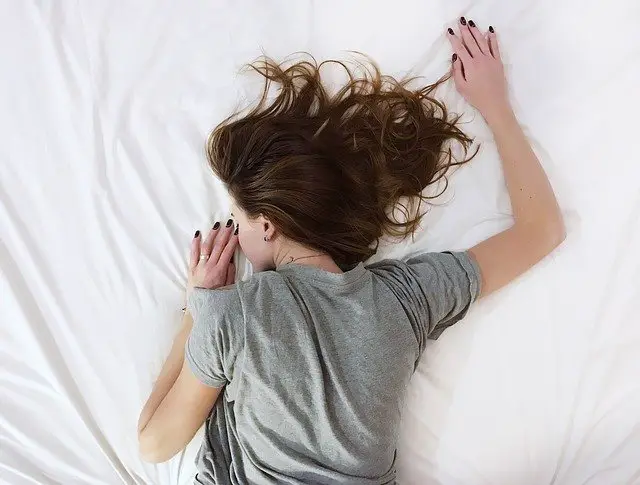
- It maintains a strong immune system. Lack of sleep compromises immune function and makes you more vulnerable to catching colds, flu and many other sicknesses [4].
- It slows aging. If you don’t get enough sleep it will lower your level of growth hormone which is necessary for cell repair. In one study, young, healthy sleep-deprived people had the hormonal profiles of much older people.
- A good night’s rest helps prevent diabetes. Sleep will boost your immune system and can help boost your memory!
- It helps keep you fit. When you don’t get enough sleep, you have an increased appetite and you will want to eat more junk food [5].
- Maintaining a good sleep balance of at least 7 hours of sleep per night has been proven to help you live longer. As a matter of fact, there have been a lot of recent studies and articles supporting this statement [6].
- Good quality sleep has been found to improve cognitive performance [7].
Longer than recommended duration of sleep on a regular basis is also associated with the risk of increased mortality rate but we’ll stick with the former for the sake of the topic of this post.
How do you know if you have Insomnia?
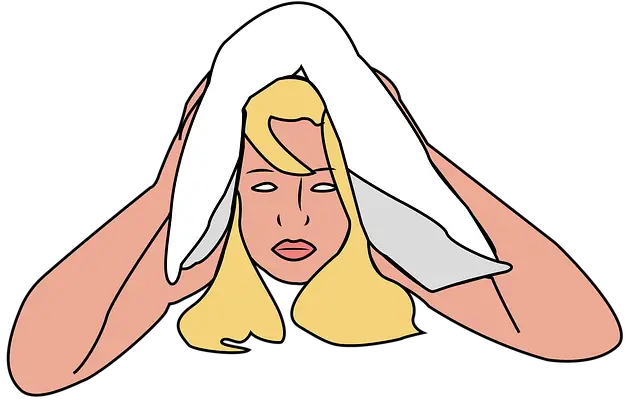
Insomnia is defined as sleep disorder when one cannot fall asleep or having trouble staying asleep despite being given the appropriate circumstances to do so [8].
Some widely reported signs and symptoms of Insomnia include:
- Trouble falling asleep
- Hard to stay asleep
- Waking up and not being able to fall back asleep.
- Exhaustion and tiredness during the day.
- Feeling like you haven’t slept well when you wake up.
- Lack of alertness
- Difficulty focusing on tasks or remembering things.
- Mood swings
- Making more errors
Let me guess, you do this all night…
Shifting from one side to the next side, try another spot on the bed, read a book, watch some T.V.
Nothing works right?
Simply put, you just can’t get to sleep.
But you’re looking at the clock and it says 2 a.m. in the morning and you’re still not asleep. And if this is happening on a regular basis, you may have Insomnia.
Your sleep problems may be related to other medical conditions.
So what causes Insomnia?
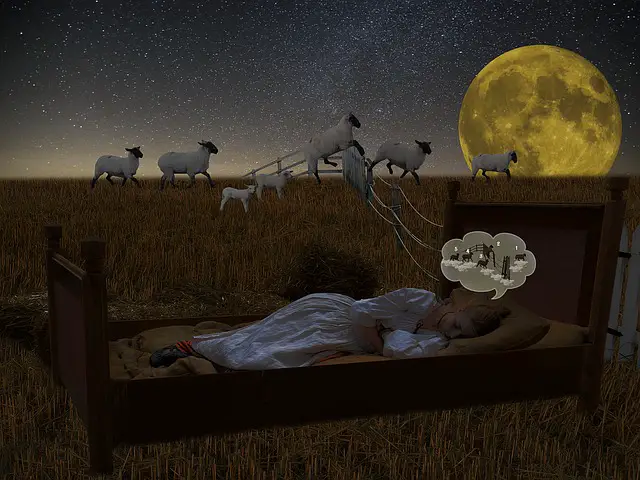
Let’s have a look at some of the common and not so common causes of insomnia.
Stress
The number one cause of insomnia is Stress. It’s hard to turn our brains off at bedtime when we’re stressed. We all worry about different things, whether it be about money, our kids, work or our relationship, it’s hard to turn it off. Learning how to deal with emotional issues is best when trying to get a good night’s sleep.
You could also be depressed because of something major that might have happened.
Change in life circumstances
Another reason you could have trouble falling asleep is that you have made some changes in your life, like starting a new job, or a new relationship. And, if you are staying up too late watching television or surfing the Internet, you won’t give your body enough time to wind down from the day for a good sleep.
For example, if you work from home on the computer, staring at it for long period of time can also make you stay awake because of the light that it reflects.
Perhaps you’ve been taking a lot of naps during the daytime due to stress or work-related issues? Although short naps can be helpful and relaxing, it can make things worse for those who suffer from insomnia.
Do you happen to sleep at random times of the day to make up for the lost sleep hours?
This could also confuse your body’s clock and make it difficult for you to sleep at night.
Odd working hours, night shifts to be precise can also contribute a lot to your sleeplessness.
Body pain and other conditions
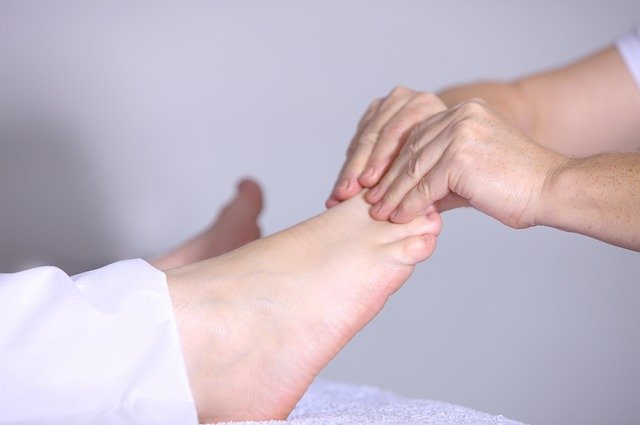
It’s not that easy to fall asleep when you have pain in your body, especially back or neck pain.
Other health conditions that can cause Insomnia include:
- Asthma
- Thyroid problems
- Arthritis
- Chronic pain
- Nasal/sinus allergies
- Acid reflux
Lack of Exercise
Who fancies going for a quick walk or just running up down the stairs when you’re already tired and exhausted?
Not me!
Your brain would try to make you feel like you’ll die even if you just do some basic stretching.
You are that tired.
However, YOU need to exercise. Exercise is good for the mind and body and it will help when it’s time to sleep.
Caffeine
What’s the one thing you’d reach for when you wake up after not getting enough sleep?
Grab your morning cuppa, right?
Coffee has been attributed to helping people stay awake but if you’re suffering from sleeplessness, you really shouldn’t drink it.
And certainly not before going to bed.
Too much caffeine contributes in a large part to insomnia. Caffeine is a stimulant to the central nervous system so it’s best to eliminate all caffeine at least 6 hours prior to your bedtime. That means coffee, soda, and chocolate.
Medications

Some medications can interfere with your sleep. If you’re taking any type of medications, check with your Doctor to see if that might be causing your sleeplessness. A slight adjustment on the time of day you take the medication might be all that you need to get a good night sleep.
Hormonal changes
Anything that can interfere with the normal hormonal balance of your body can interfere with your sleep quality.
Adrenal fatigue, Menopause, and Perimenopause are good examples of those.
Restless Leg Syndrome
Did you notice that you simply can’t stop moving your legs in different directions for so long when trying to fall asleep?
You might have what’s known as Restless Leg Syndrome.
RLS is a neurological disorder when a person feels the irresistible urge to keep moving their legs and/or body when trying to sleep [9].
It often goes underdiagnosed but it can actually have a serious impact on your sleep quality.
Obstructive Sleep Apnea
OSA is a sleep disorder and it’s when a person frequently stops breathing during their sleep.
It happens because of the poor motor tone of the tongue/ or air dilator muscles [10].
The sudden drop in oxygen level and frequent breathing difficulties from OSA can cause a person to wake up frequently throughout the night, resulting in insomnia.
20 Things to Help You Sleep Better
Here are some insomnia tips that might make a difference when you’re having trouble falling asleep.
For some people it is the sleep environment that needs to change, for others, it is jangled nerves or worries that keep them awake.
And for others, it may be a medical condition like back pain. No matter what your problem is, you can find a remedy or solution here that may help you get to sleep and stay asleep.
Try these solutions and remedies out and see which ones work for you. Please remember – everyone is different, and the cause of your insomnia is not necessarily the same as other people you know who have a sleep problem.
Please see your doctor for help if your sleep – insomnia problem is serious and long-standing.
Simple Insomnia Tips to Try First
Make sure your body knows when it is Day and Night.
Get some sunshine on your face.
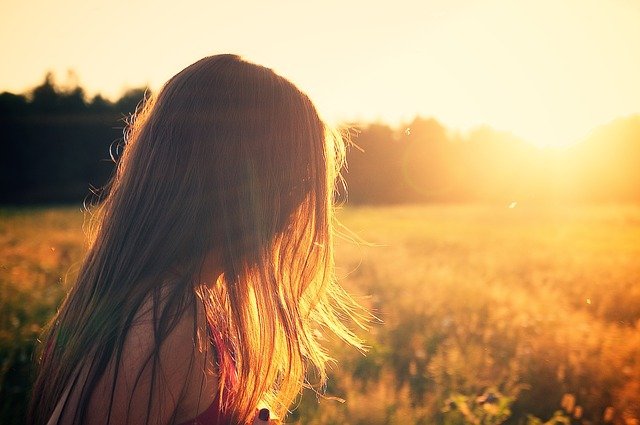
If you let the sunshine on your face for at least 15 minutes a day, you will be able to affect your body’s subtle sleep system.
Your pineal gland, which is located in the brain a little above and right between your eyes, produces a chemical called melatonin to regulate sleep [11].
The pituitary gland is affected by the sun, and when you don’t get enough sunshine entering your eyes, the pituitary gland may not produce the right amount of melatonin to maintain proper sleep.
Sunshine helps your body produce vitamin D, which is also necessary for the production of serotonin, the “feel-good hormone.” Sunshine will help your body know it is daytime.
Don’t nap. Go to bed at the same time every night.
Sleep experts will all agree that it is helpful for you to go to bed at a regular, planned time. This way the body settles into a natural sleeping rhythm.
Don’t do vigorous exercise within 3 hours before bed.
Exercise raises the heart rate and also stimulates the body into an alert state. Alert is what you don’t want at bedtime, and will make your body think it is morning instead of night.
I know it contradicts with what was mentioned earlier that exercise helps you sleep but here we’re talking about heavy exercise.
Insomnia and Food

Eat a high carbohydrate snack before bedtime.
Food can be your friend when it comes to helping your sleep – insomnia problems.
After eating some carbohydrates your body may have a period of slightly higher blood sugar, and then when the insulin kicks in, your blood sugar levels fall slightly and you will feel drowsy.
This is a good way to create the right environment to help you move into sleep. It is important to remember, however, that if you eat a big meal before sleeping it will more likely to end up as fat. A snack is not a banquet…
Tryptophan-rich foods
Tryptophan is an essential amino acid and a sleep inducer [12]. It’s usually found in protein-rich foods.
Some foods that are rich in Tryptophan include:
- Warm or hot milk (but not cold milk) and cottage cheese
- Eggs
- Chicken and turkey
- Nuts and seeds
- Tofu
- Beans and lentils
Take Melatonin
Melatonin is the end result of a conversion that happens in the brain after you eat foods high in tryptophan, and melatonin is what helps you fall asleep.
One food recently proven in scientific studies that will help you get to sleep and even increase the time you spend asleep by half an hour per night is tart cherry juice [13]. Montmorency cherries are highest in melatonin, and you can find this juice at natural food stores.
7. Magnesium
Magnesium is another mineral that will help us sleep, and many people have underdiagnosed Magnesium deficiency.
Magnesium helps us sleep by affecting the neurotransmitters in the brain.
Good sources of magnesium are:
- Green leafy vegetables like spinach or Swiss chard
- Pumpkin seeds
- Soybeans and black beans
- Halibut
Also, if you get cramps in your muscles at night, it could be that you are deficient in magnesium. Taking magnesium will help relax cramped muscles.
8. Herbs for insomnia
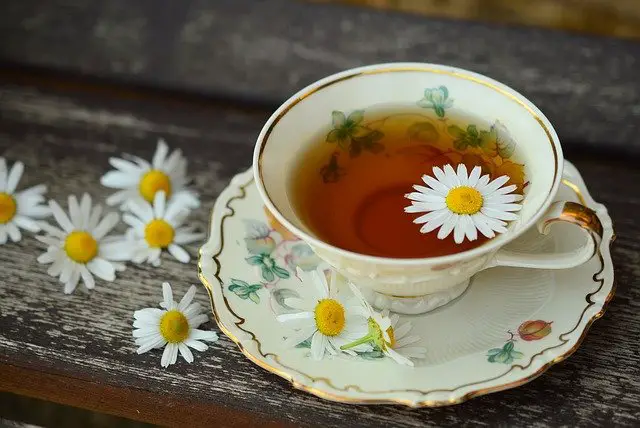
Herbs have been used for centuries to help people relax and sleep.
Try a cup of herbal tea before bed and see if one of these help you sleep better when you have trouble falling asleep.
Chamomile
A study conducted on postnatal women found that Chamomile tea helped alleviate depression and sleep quality problems [14].
What they did:
- 80 postnatal women with sleep problems were assigned into 2 groups: one for the treatment and one control.
- The participants in the treatment group were instructed to drink Chamomile tea for a period of 2 weeks and the control group only the regular postpartum care.
- The results revealed that those who drank Chamomile tea had significantly lower scores of physical symptoms related to sleep and depression problems.
There’s also another recent study where 60 elderly people (aged 60+) were allocated into 2 groups. One for the treatment and one control [15].
The treatment group received 200mg of Chamomile extract capsule twice a day for 28 days while the control group received wheat flour capsules in the same manner.
The results from this study also revealed that the consumption of Chamomile capsules significantly improved sleep quality in elderly people.
Passionflower tea
Passionflower, also known as Passiflora incarnata is another traditional herbal sedative and a popular natural sleep aid.
A study conducted on 41 participates (age 18-35) found that Passionflower tea improved sleep quality in healthy young adults [16].
Hops
The Hop, a component of beer, is a sedative plant. It’s widely used as a traditional remedy to treat conditions such as anxiety, nervousness, restlessness, and insomnia [17].
Hops are available in capsule and tea form so you don’t have to worry about beer. Drinking small amounts of beer is actually good for your health.
Valerian, a proven and time-honored remedy, especially good for people who have a hard time falling asleep;
California Poppy, which has also been proven to not only help you get to sleep but to improve the quality of sleep;
Kava, the national drink of Fiji, is also a popular tea for helping people get to sleep.
Insomnia and stimulants
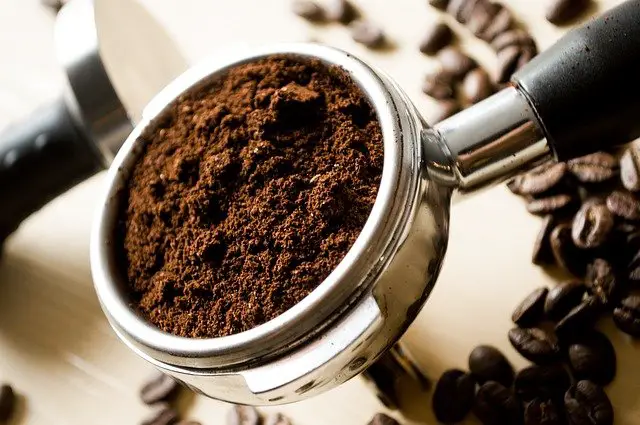
Caffeine – the BAD ones.
Coffee, high caffeine sodas, colas, chocolate, caffeinated tea, and energy drinks.
Hmmm – yes, chocolate has caffeine in it.
The half-life of caffeine is supposedly 7 hours, which means that if you drink coffee at noon, half of it will be gone by 7 pm. Just remember this when you reach for coffee at 4 pm – the half-life will be 11 pm. Uh oh. Better not do that!
Smoking
Nicotine is a stimulant and is very bad for your sleep. Make an effort to stop.
Alcohol consumption
It may make you tired initially, but the sleep doctors have done some recent research that proves that alcohol significantly interferes with your sleep cycle and prevents the restorative aspect of sleep, so you wake up feeling unrefreshed.
That is the truth. You didn’t sleep well, because you missed out on some of the sleep cycles that keep you healthy and happy.
Stimulants
There are stimulants added to many over the counter preparations, even cold medicines. Read your labels carefully.
Avoid liquids before bed
Some sleepers need to get up in the night to go to the bathroom. Limit your fluids two hours before your bedtime and you will sleep better.
Relaxing the body before bed
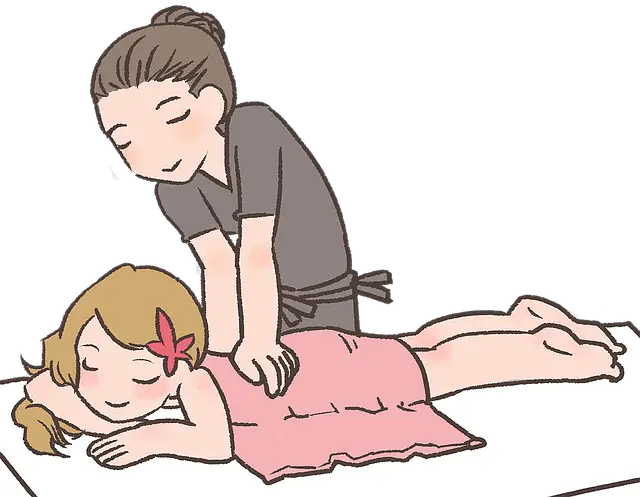
Massage
Ahhhh. It is so calming and sleep-inducing. Get your spouse or a friend to give you a massage. Don’t forget, you can do the same for them too. Foot massage is especially soothing at night and relaxes you into a delicious sleep.
A Warm Bath
is a great way to relax before bed, but if the water is too warm you may have the opposite effect. Magnesium helps induce sleep, so putting a cup of Epsom (magnesium) salts in the bath is an excellent idea.
Sleep on a bed that is comfortable for you
Beds that are too soft wreck your back. And so do beds that are too hard. Find one that is right for you and stick with it. Since we will spend one-third of our lives in our beds, it is smart to have one that feels very comfortable and helps us get a good night’s sleep.
Insomnia Tips about your Sleep Environment
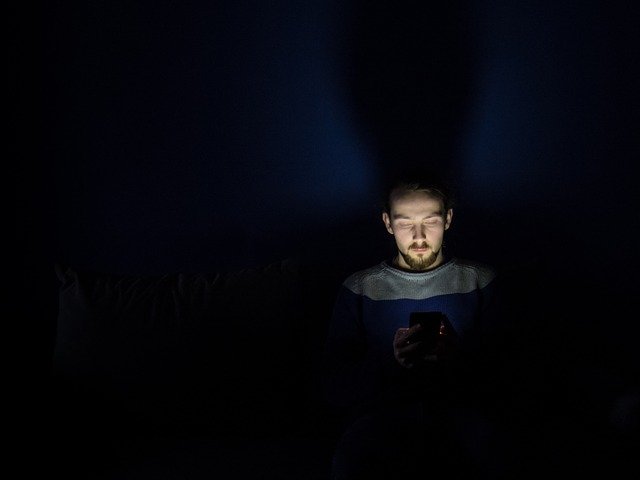
Your phone
Turn off your phone and hide the clock! Noises interrupt your sleep. If your home is in a noisy area, you can try using a white noise machine to block the noise from outside.
Keep your bedroom environment dark
A small night light is enough to keep you from falling over things on your way to the bathroom. Lights interfere with sleep. Curtains help and are especially necessary if you have a night shift at work. And make sure your clock is not shining so brightly that you are affected by its light. Find a clock that only lights up when you push a button, not one that shines in your eyes all night.
Take caution with your electronic devices
Looking at a bright computer screen is like staring at the sun, and will interfere with your sleep cycle. Turn off the cell phone, shut off the computer and iPad/tablet devices at least an hour before bedtime, preferably sooner, so that your brain will understand that it is the night. It is especially important to do this for children. Also – try not to use an iPad for reading at night. The light shining right into your eyes will not make it easier to sleep.
Turn on some sleep music
Sleep Music is one way to create the perfect environment for sleep. There are special audio tracks that include music or sleep sounds which can help you get to sleep, and some have the rhythm of the sleep brainwave embedded in the music that will tune your brain to the frequencies of sleep. These are a really excellent option for people who have trouble sleeping and can relax the brain deeply so you get a good night’s sleep.
Old school techniques that can work for some people
Okay, so you are wide awake and earplugs just aren’t cutting it right now. Instead of tossing and turning, you may as well get up and do something useful and preferably enjoyable.

Here are some options:
Read a BORING book
Okay, so I said so something enjoyable, and maybe boring books don’t rank terribly high on the pleasure scale, but they can be wildly effective when it comes to helping you fall asleep.
It was my secret weapon for many years when I was dealing with regular bouts of insomnia.
Now that I think about it, it might have also contributed to my not so excellent high school and college grades.
Write a gratitude list
A lot of insomnia is caused by stress, and you can’t be stressed and grateful at the same time. So write a gratitude list, and make it a long one.
Write down your worries
You may think that writing your worries has the opposite effect of writing a gratitude list, but that’s not the case. If you write down your worries, you’re effectively telling your brain that it won’t have to worry about those things anymore since you’ll be dealing with them in the morning, and it will stop going round and round trying to find solutions. And you’ll be able to sleep.
Catch up on some reading
Catch up on some reading. Just make sure it’s not the sort of reading that will keep you awake. Stephen King’s “Insomnia” is NOT a good idea for most people. Instead, read some information that you need to catch up on, or maybe some personal growth material.
Use a regular Kindle or Kindle Keyboard if possible
Why a Kindle or Kindle Keyboard? Because they’re not backlit, and so they don’t signal your brain to stay awake.
Wear comfortable sleepwear
Sure, a sexy negligee might look, well, sexy, but it’s not the most comfortable thing to sleep in for most women. A 100% cotton pajama might be a better choice when quality sleep is a priority.
What’s your experience with insomnia?
Let us know in the comments below.